How Long Does CBD Last in Your Body?
Summarize
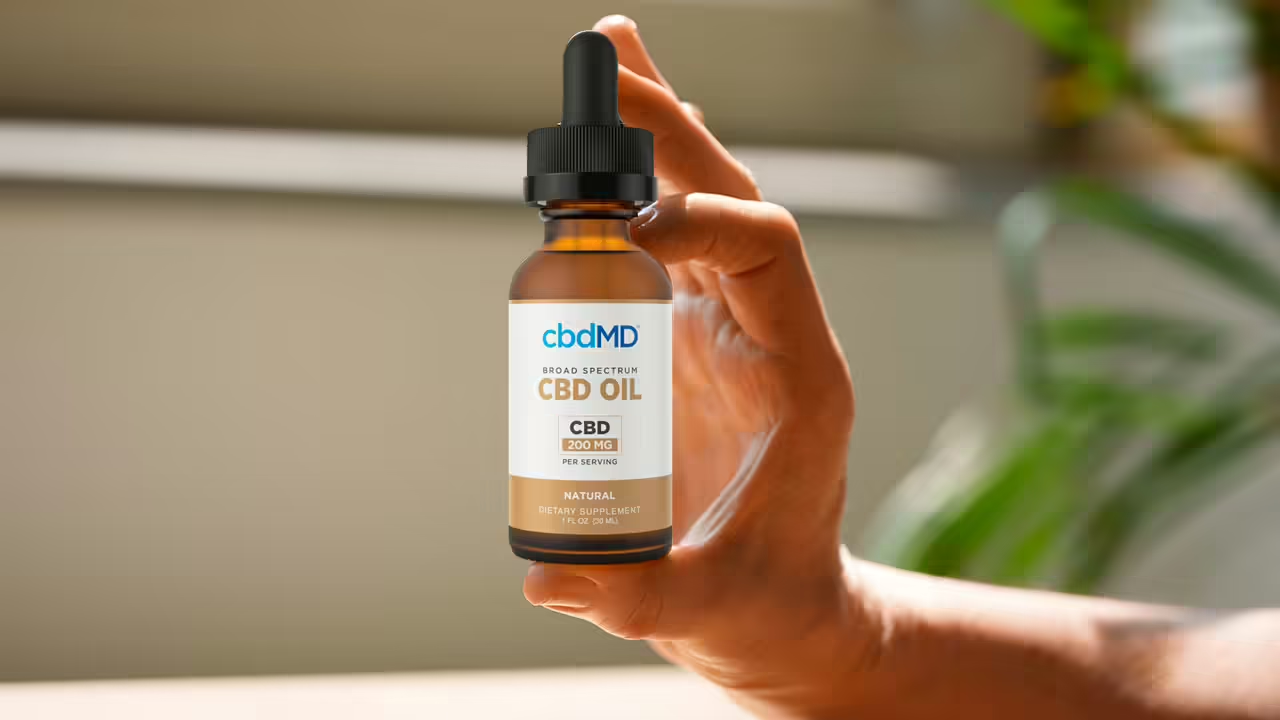
CBD, one of more than 150 cannabinoids in the hemp plant, has garnered the attention of millions of users and a growing number of clinical researchers globally. It is a potential natural compound that could promote wellness and offer specific benefits. This promising aspect of CBD often leads to the key question: How long does CBD last? The answer to this question guides people on the CBD potency and frequency of doses to take. Here is a brief review of what researchers have discovered in their clinical studies.
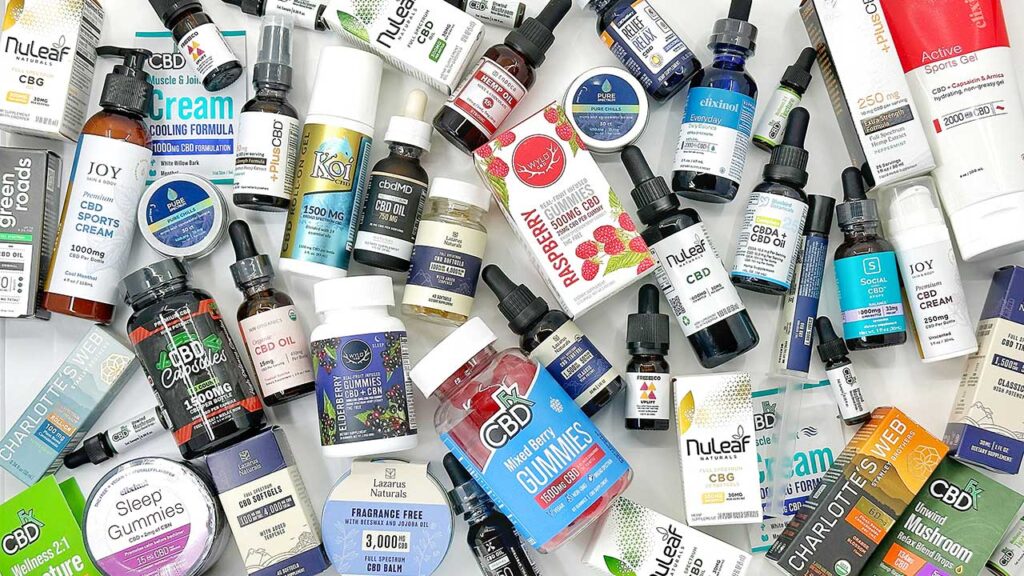
TL;DR (Too Long; Didn’t Read):
How long does CBD stay in your system? The answer is not simple, as it depends on a multitude of factors unique to each individual. These factors include metabolism, body composition, potency, amount of CBD taken, frequency of dosing, method of consumption, and more.
Vaping effects may last 2-3 hours. Sublingual oils may last 4-6 hours. Edibles must be digested, so they take longer to digest, and the effects last longer, at 6-8 hours. The effects of topicals are felt quickly and can last 2-6 hours.
CBD could be detectable for two weeks to three months, depending on these factors.
Table of Contents
Factors Influencing CBD Duration in the System
The higher the bioavailability of CBD through the chosen method of consumption, the amount and frequency of CBD consumption, diet and other factors influence how long CBD remains in your system.
Dosage
The more CBD is taken, the more CBD reaches the bloodstream. Various studies, for example, found that people who took 5.4 mg of CBD orally had CBD blood levels ranging from .2-2.6 ng/mL. When they took 40 mg of CBD, the CBD blood level increased from 1.1 to 11 ng/mL. When taking 100 mg of CBD, the blood level increased from 0-50 ng/mL. People take as much CBD as needed to help the condition they are targeting.
Method of Consumption
- Sublingual
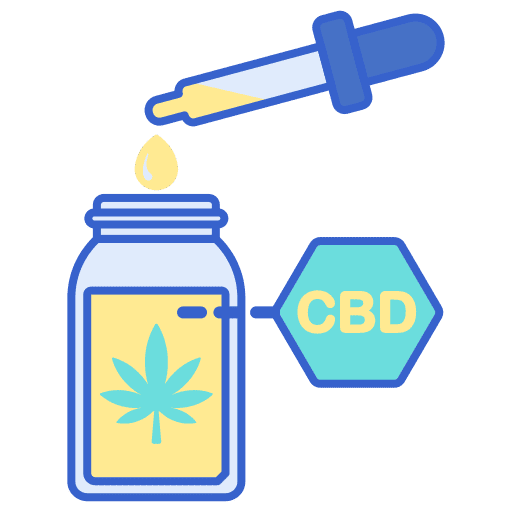
When using tinctures sublingually, CBD is absorbed quickly into the bloodstream. Some studies have found that taking CBD oil sublingually increases bioavailability by up to 35%.
- Ingestion
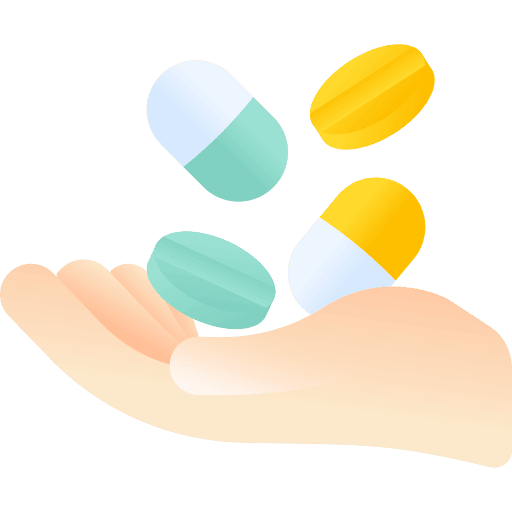
The lowest bioavailability occurs when taking CBD orally. The CBD must undergo the first-pass metabolism process, which means you must digest the CBD before it reaches the bloodstream. During digestion, metabolites enter the bloodstream, and some are excreted through the kidneys. CBD’s oral bioavailability is approximately 13-19%.
- Inhalation
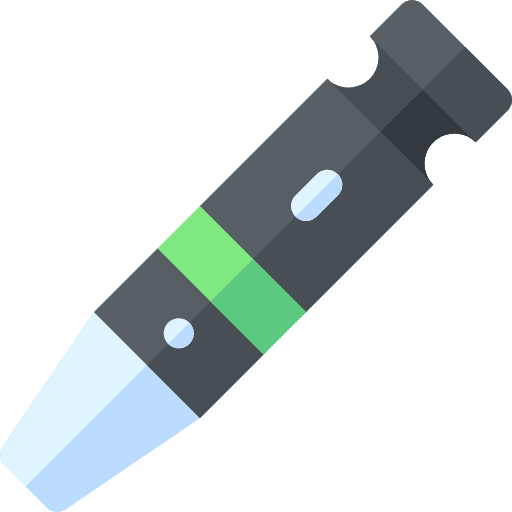
When vaping or smoking CBD, the cannabinoid is rapidly absorbed into the bloodstream, with the concentration peaking within 10 minutes and declining for another 30 minutes. Inhaling CBD via smoking or vaporizing has some of the highest bioavailability, at 31-45%.
- Topical application
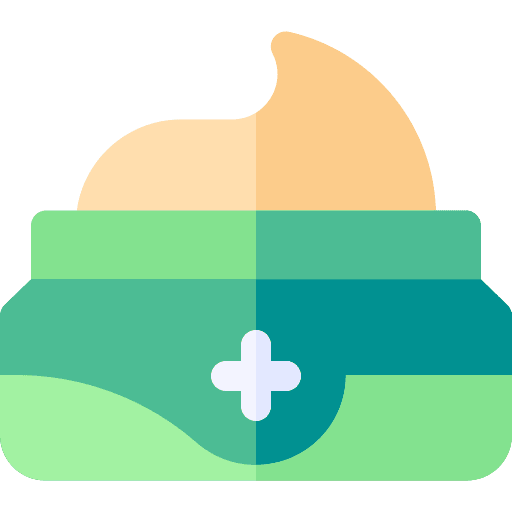
CBD topicals work quickly. The initial effects on conditions like dry skin may be felt within 15-30 minutes. A study to assess topical CBD effects on athlete’s muscle and joint stiffness found six weeks of treatment significantly reduced discomfort and improved function.
Different Ways to Take CBD
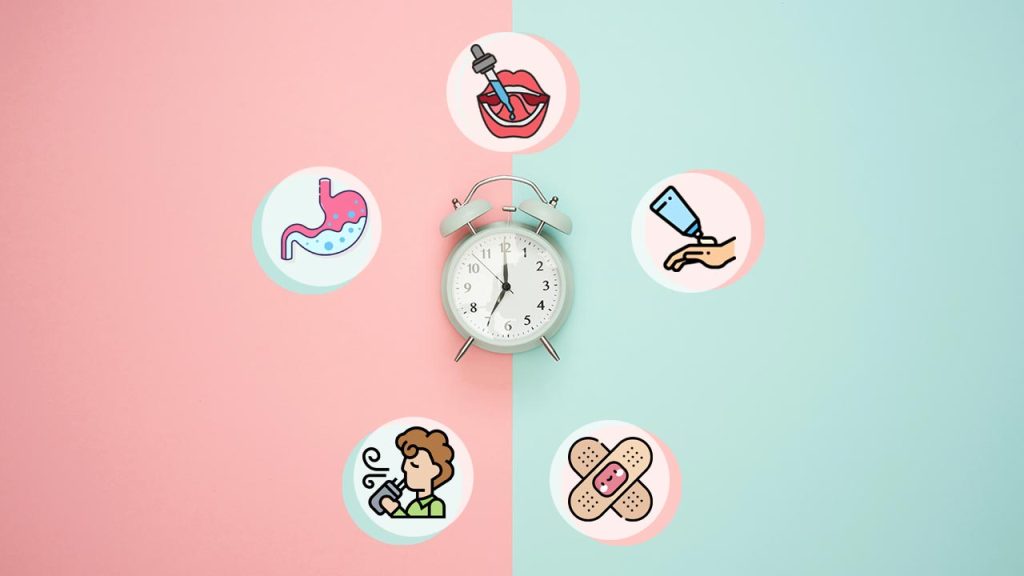
Metabolism
When taking CBD orally, the CBD travels to the liver via the veins carrying blood from the digestive tract. It undergoes first-past metabolism via enzymatic action, converting CBD into metabolites. The metabolites are then transported in blood to other body parts; some are eliminated in urine. The amount of CBD excreted in urine influences how much CBD remains in your system.
Frequency of Use
Since CBD accumulates in fat tissues, the frequency of use affects the duration of the effects. Users who take this compound daily are more likely to experience the effects longer than occasional users.
Body Composition
CBD is lipophilic, which means it is fat-soluble. Individuals with higher body fat would likely retain CBD longer than those with less fat and more muscle. CBD is released slowly from fat, which increases the time it is in the body. A prolonged release means the CBD effects are felt for a longer time. Muscles are more metabolically active than fat tissue, meaning CBD will break down faster, so the effects do not last as long.
Diet
CBD is influenced by diet. When taken with a high-fat, high-calorie meal, it increases blood concentration. CBD is taken with cow’s milk, which has fat and increases blood concentration.
How Long Before CBD Starts Working?
CBD generally “kicks in” between 15 minutes and three hours after consumption.
CBD Onset and Duration
Here, you can view CBD duration chart:
| CBD Product Type | Onset Time | Duration of the Effects |
| CBD vape oils | 2 minutes | 30 minutes – an hour |
| CBD oils | 30 minutes – 3 hours | Up to 4 hours |
| CBD edibles | 60 minutes | Up to 6 hours |
| CBD topicals | Hours to show the effect | Up to 5 hours |
How Long Does CBD Stay in Your System?
Cannabinoids interact with the endocannabinoid system and are stored in your body’s adipose (fat) tissues so CBD can build up with repeated doses over time. CBD potency and dosage frequency are key factors in determining how long CBD stays in your system.
The duration of CBD effects is one hour to five days. A half-life refers to how long the body requires to eliminate one-half of a compound. If you take a specific dose, half of it will still be present in your body after the specified half-life period. Repeated oral administration of CBD has demonstrated a half-life of 2-5 days. When smoking CBD, the half-life is 27-35 hours.
As discussed, there are some factors known to influence the length of time CBD stays in your system. If you consume CBD on an empty stomach, CBD will be eliminated sooner than if you eat a high-fat meal. Another factor is the frequency of use. The more often you consume CBD, the more CBD will build up in fatty tissues, meaning CBD could remain in your system for weeks. When CBD accumulates in tissues, it is slowly released into the bloodstream over time.
Generally, the half-life of CBD is 14-17 hours. Eliminating CBD will take about five half-lives or 3.5 days.
CBD Detection Times
Researchers found that a pure CBD dose is typically not detectable in urine when using the standard workplace federal drug testing guidelines. Since CBD is not psychoactive, standard drug tests do not test for this cannabinoid. However, if taking a CBD product with THC, it may be detectable for at least five days. Depending on the main factors influencing how long CBD remains in your system, urine testing could detect CBD metabolites for up to two weeks.
CBD is detectable in the blood for approximately one week and in saliva for about 36 hours. The hair test can detect compounds for the most prolonged period, as much as three months.
Detection times are greatly influenced by how often someone takes CBD through any means.
How to Speed Up CBD Clearance?
CBD is eliminated mainly through urine and sweat. To increase the speed with which CBD is eliminated from the body, you would concentrate on doing things that increase urination and sweating.
- Drink more water to increase your urination rate.
- Avoid alcohol, which causes dehydration.
- Add more fiber to your diet to stimulate the digestion system so that CBD is processed quicker and eliminated sooner.
- Add more fats to your diet to increase the rate of CBD absorption.
- Exercise or perform other activities that cause sweating.
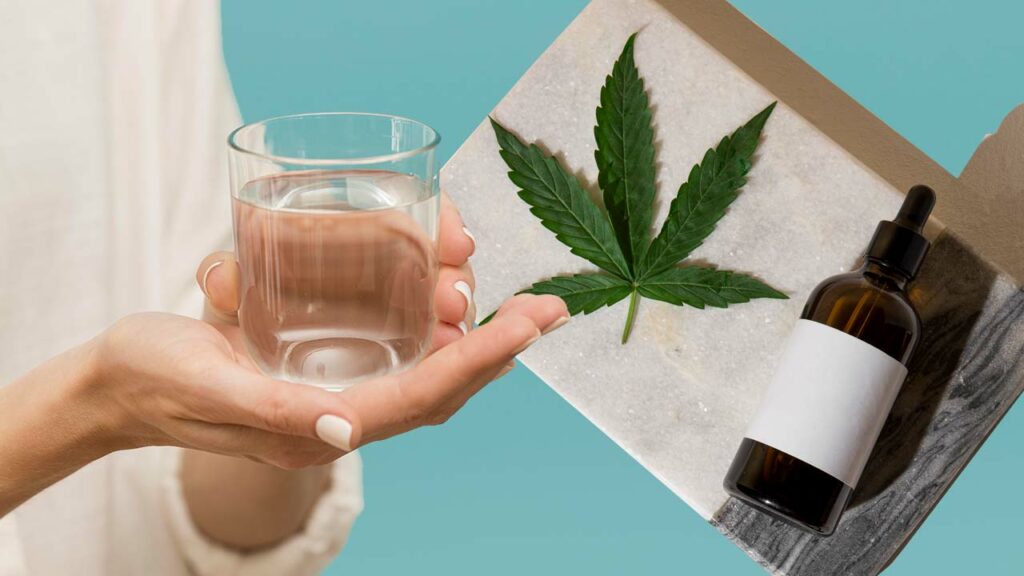
How Do You Get CBD Out of Your System?
FAQs
How Long Does it Take for CBD to Work?
The method of administration determines how long CBD takes to work. Vaping and smoking work the fastest. CBD enters the bloodstream through the lungs, so the effects are felt within five minutes.
If you take CBD sublingually in the form of drops or lollipops, the effects are usually felt in 15-30 minutes. CBD is absorbed through the mucous membranes in your mouth and into the bloodstream.
Edible products, like gummies, capsules, and cookies, must be digested before the effects are felt. The liver processes CBD, and CBD metabolites enter the bloodstream. It can take 30 minutes to two hours for the effects to be felt.
The effects of CBD topicals are localized. The CBD may begin to work within 15-45 minutes.
How Long Do the Effects of CBD Last?
Many factors influence the length of time CBD effects last. They include body composition, method of CBD administration, diet, metabolism, and CBD potency. Vaping or smoking effects may last 2-3 hours.
Sublingual oils or tinctures may last 4-6 hours. Edibles must be digested, so they take longer to digest, and the effects last longer, at 6-8 hours.
Since CBD topicals are applied to the skin and bypass the first-pass metabolism system, the effects are felt quickly and can last 2-6 hours. Factors influencing the length of time include the skin’s condition and metabolism. Research has found that regularly repeated applications are most effective because the compounds may build up in the skin.
How Long Does CBD Last on the Shelf?
CBD can last 1-2 years if stored correctly in a cool, dry place. CBD is plant material; air, light, and heat exposure will accelerate CBD degradation like any harvested plant material. Quality CBD products are correctly packaged and have a stated expiration date. You should not take your CBD product after the expiration date.
How Often Should I Take CBD to Maintain its Effects?
You should first follow the recommended dosage on the CBD product label. It may say take once or twice a day, for example. Researchers have found that CBD is safe to use every day. You can take more CBD when you feel its effects wear off. Since CBD is not government-regulated, there are no official dosage recommendations, as you can find on supplements. A review of clinical studies found that the reason for taking CBD influences the amount and frequency of CBD consumption.
Consider All the Variables
CBD usage is growing yearly, with sales projected to reach $4.4 billion in 2024. One of the crucial points to remember is to start with a low-potency CBD product if you are a beginner. Assess the effects for a week or two and slowly increase the amount over time. CBD is well tolerated, and the side effects are mild if any are experienced. Most people do not experience side effects.
However, each person’s situation is different. You should consult your doctor, especially if taking prescription medications, before taking CBD. It is up to each consumer to ensure only high-quality products are used and to track the effects.
Sources
- https://www.ncbi.nlm.nih.gov/pmc/articles/PMC10601936/
- https://www.ncbi.nlm.nih.gov/pmc/articles/PMC6275223/
- https://www.cancer.gov/about-cancer/treatment/cam/hp/cannabis-pdq
- https://www.ncbi.nlm.nih.gov/pmc/articles/PMC10572536/
- https://www.ncbi.nlm.nih.gov/pmc/articles/PMC10061782/
- https://www.ncbi.nlm.nih.gov/books/NBK556048/
- https://pubmed.ncbi.nlm.nih.gov/31682266/
- https://bedrockrecoverycenter.com/articles/cbd-in-your-system/
- https://www.ncbi.nlm.nih.gov/pmc/articles/PMC6177698/
- https://www.statista.com/statistics/1067467/cbd-product-dollar-sales-us/
Share this post


0